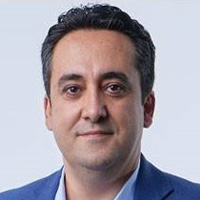The Disturbing Conflicts of Interest in Target Date Funds
Are you one of the 40 million folks who has a target date fund in your 401(k)? It could be costing you 21% in returns over the course of your career, according to a study by three professors from INSEAD, Villanova University and Michigan State.

Profit and prosper with the best of Kiplinger's advice on investing, taxes, retirement, personal finance and much more. Delivered daily. Enter your email in the box and click Sign Me Up.
You are now subscribed
Your newsletter sign-up was successful
Want to add more newsletters?

Delivered daily
Kiplinger Today
Profit and prosper with the best of Kiplinger's advice on investing, taxes, retirement, personal finance and much more delivered daily. Smart money moves start here.

Sent five days a week
Kiplinger A Step Ahead
Get practical help to make better financial decisions in your everyday life, from spending to savings on top deals.

Delivered daily
Kiplinger Closing Bell
Get today's biggest financial and investing headlines delivered to your inbox every day the U.S. stock market is open.

Sent twice a week
Kiplinger Adviser Intel
Financial pros across the country share best practices and fresh tactics to preserve and grow your wealth.

Delivered weekly
Kiplinger Tax Tips
Trim your federal and state tax bills with practical tax-planning and tax-cutting strategies.

Sent twice a week
Kiplinger Retirement Tips
Your twice-a-week guide to planning and enjoying a financially secure and richly rewarding retirement

Sent bimonthly.
Kiplinger Adviser Angle
Insights for advisers, wealth managers and other financial professionals.

Sent twice a week
Kiplinger Investing Weekly
Your twice-a-week roundup of promising stocks, funds, companies and industries you should consider, ones you should avoid, and why.

Sent weekly for six weeks
Kiplinger Invest for Retirement
Your step-by-step six-part series on how to invest for retirement, from devising a successful strategy to exactly which investments to choose.
The Pension Protection Act of 2006 single-handedly created target date funds as a global asset class, one which now commands a 20% to 25% share among public and corporate pension plans. In the United States, more than $2.5 trillion is invested in these types of funds by approximately 40 million people.
The Pension Protection Act gives legal protection to plan managers when the participants fail to make a specific choice. In that case, the employee’s contributions go to the age-based “default” option. For this reason, many investors in retirement accounts end up holding these target date funds (TDFs) without paying attention to the direct and indirect costs associated with them. This results in a cumulative return loss of 21% for an average investor holding the fund for 50 years, according to our study, “The Unintended Consequences of Investing for the Long Run: Evidence from Target Date Funds.”
A ‘Set It and Forget It’ Portfolio Creates a Lack of Accountability
Thanks to the Pension Protection Act, target date funds have become the most popular default option, and their main feature is that they provide long-term portfolio allocation for unsophisticated and inattentive investors. As the investor ages, their investments are automatically adjusted from riskier equities toward safer bonds. This takes the form of automatic rebalancing (the “glide path”) with a controlled level of risk that theoretically would not require frequent monitoring by investors. Target date funds do everything that designers of pension plans promised 15 years ago: age-appropriate portfolios with a controlled level of risk that do not require daily monitoring.
From just $107.88 $24.99 for Kiplinger Personal Finance
Become a smarter, better informed investor. Subscribe from just $107.88 $24.99, plus get up to 4 Special Issues

Sign up for Kiplinger’s Free Newsletters
Profit and prosper with the best of expert advice on investing, taxes, retirement, personal finance and more - straight to your e-mail.
Profit and prosper with the best of expert advice - straight to your e-mail.
But there is a problem with this “set it and forget it” mentality for investors in target date funds, particularly those with a 30- to 40-year time horizon. Early on in their investment timeline, they might be willing to tolerate short-term volatility, but it is the lack of monitoring that removes the fund management companies' incentives to provide investors with the best possible performance.
Target date funds typically do not directly invest in equity or bonds but in underlying pooled investment vehicles, such as index mutual funds, exchange-traded funds and actively managed mutual funds, and are typically chosen within the same fund family. In 2019, around 58% of the TDFs invested only in the same families' funds. Another 20% of the TDFs invested 50% to 99% of assets in the same families’ funds. Only 10.6% of the TDFs did not invest in their own family.
In our research, we found that investors do not punish the fund managers for underperformance by withdrawing their money, nor do they reward them for a good performance by investing more. Instead, funds receive a steady flow of monthly contributions, regardless of performance.
The problem caused by this lack of accountability is especially acute among relatively young investors. Indeed, a longer investment horizon reduces the incentives for younger investors to monitor their accounts — the payoff of the fund is so far in the future that it is not worth even thinking about — providing the manager with more opportunities to behave opportunistically and put the fund's management company over investors' interests.
The Other Big Problem: Higher Fees
Additionally, the problem for these default investors involves fees. Target date funds contain both direct and indirect fees (fees charged by the funds that the TDF invests into), and the transparency of indirect fees is low. Although TDFs are cheaper than actively managed equity products, the second layer of fees they come with tends to nullify that advantage. Indeed, TDF managers engage in fee-skimming by charging higher fees on the less observable, more opaque underlying funds. And the longer the horizon, the higher the total fees, according to our research.
Almost all of the effect comes from the “underlying” fees — that is, the fees charged by the underlying investment vehicles. In contrast, in the case of the directly charged fees, the time horizon plays no role. Thus TDFs are used to subsidize the underlying funds managed by the same family — in fact, in 37% of the cases, TDFs invest in more expensive classes of the funds, providing the fund family with an extra layer of fees.
More importantly, even controlling for fees, target date funds are grossly underperforming equity funds with the same risk profile. The underperformance is substantial in long-horizon funds: as high as 1.8% per annum. The effect on employee’s 401(k) and other retirement plans is significant. We estimate that, over a lifetime, such underperformance results in a 20% to 30% deficit in pension savings at the time of retirement. Such a lower performance is related to both lower return and higher risk-taking.
Our Conclusion: More Regulation Is Needed
Overall, our results suggest that target date funds require some form of regulation. Indeed, while the TDF is an essential innovation that aims to improve investors' welfare in retirement accounts, still the abuse of inattentive investors sounds more like a conflict of interest, which serves to undermine the essential benefits of investing for the long run.
A potential solution would lie in better transparency in investment policy and the risk level that target date funds take, both for short and long horizons. Within this context, the higher transparency in the rule that regulates the glide path and the degree by which the management company can change it would be a significant improvement. Also, the degree by which active funds should be part of the long-term asset allocation of target date funds is, at best, questionable. Simple use of a few ETFs or similar index products would provide cost-efficient asset allocation benefits and avoid potential conflicts of interest.
Profit and prosper with the best of Kiplinger's advice on investing, taxes, retirement, personal finance and much more. Delivered daily. Enter your email in the box and click Sign Me Up.

Rabih Moussawi is an Associate Professor of Finance and Real Estate at Villanova University. His research interests are in the areas of institutional investors, ETFs, hedge funds and corporate governance. Before joining Villanova, Rabih was a research director at WRDS of the Wharton School, was previously a quantitative researcher at Barclays Global Investors (now BlackRock), and taught finance at the University of Texas at Dallas.
-
 Quiz: Do You Know How to Avoid the "Medigap Trap?"
Quiz: Do You Know How to Avoid the "Medigap Trap?"Quiz Test your basic knowledge of the "Medigap Trap" in our quick quiz.
-
 5 Top Tax-Efficient Mutual Funds for Smarter Investing
5 Top Tax-Efficient Mutual Funds for Smarter InvestingMutual funds are many things, but "tax-friendly" usually isn't one of them. These are the exceptions.
-
 AI Sparks Existential Crisis for Software Stocks
AI Sparks Existential Crisis for Software StocksThe Kiplinger Letter Fears that SaaS subscription software could be rendered obsolete by artificial intelligence make investors jittery.
-
 Social Security Break-Even Math Is Helpful, But Don't Let It Dictate When You'll File
Social Security Break-Even Math Is Helpful, But Don't Let It Dictate When You'll FileYour Social Security break-even age tells you how long you'd need to live for delaying to pay off, but shouldn't be the sole basis for deciding when to claim.
-
 I'm an Opportunity Zone Pro: This Is How to Deliver Roth-Like Tax-Free Growth (Without Contribution Limits)
I'm an Opportunity Zone Pro: This Is How to Deliver Roth-Like Tax-Free Growth (Without Contribution Limits)Investors who combine Roth IRAs, the gold standard of tax-free savings, with qualified opportunity funds could enjoy decades of tax-free growth.
-
 One of the Most Powerful Wealth-Building Moves a Woman Can Make: A Midcareer Pivot
One of the Most Powerful Wealth-Building Moves a Woman Can Make: A Midcareer PivotIf it feels like you can't sustain what you're doing for the next 20 years, it's time for an honest look at what's draining you and what energizes you.
-
 I'm a Wealth Adviser Obsessed With Mahjong: Here Are 8 Ways It Can Teach Us How to Manage Our Money
I'm a Wealth Adviser Obsessed With Mahjong: Here Are 8 Ways It Can Teach Us How to Manage Our MoneyThis increasingly popular Chinese game can teach us not only how to help manage our money but also how important it is to connect with other people.
-
 Looking for a Financial Book That Won't Put Your Young Adult to Sleep? This One Makes 'Cents'
Looking for a Financial Book That Won't Put Your Young Adult to Sleep? This One Makes 'Cents'"Wealth Your Way" by Cosmo DeStefano offers a highly accessible guide for young adults and their parents on building wealth through simple, consistent habits.
-
 Global Uncertainty Has Investors Running Scared: This Is How Advisers Can Reassure Them
Global Uncertainty Has Investors Running Scared: This Is How Advisers Can Reassure ThemHow can advisers reassure clients nervous about their plans in an increasingly complex and rapidly changing world? This conversational framework provides the key.
-
 I'm a Real Estate Investing Pro: This Is How to Use 1031 Exchanges to Scale Up Your Real Estate Empire
I'm a Real Estate Investing Pro: This Is How to Use 1031 Exchanges to Scale Up Your Real Estate EmpireSmall rental properties can be excellent investments, but you can use 1031 exchanges to transition to commercial real estate for bigger wealth-building.
-
 Should You Jump on the Roth Conversion Bandwagon? A Financial Adviser Weighs In
Should You Jump on the Roth Conversion Bandwagon? A Financial Adviser Weighs InRoth conversions are all the rage, but what works well for one household can cause financial strain for another. This is what you should consider before moving ahead.


